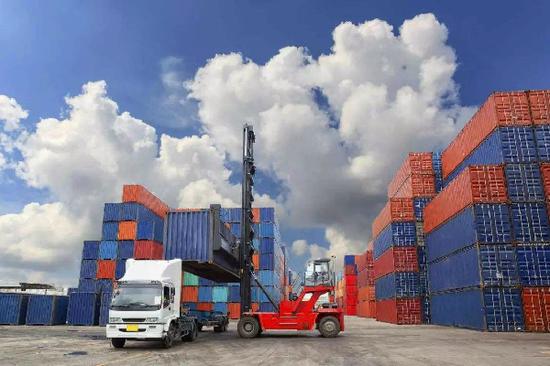
CFTZ China (Chongqing) Pilot Free Trade Zone against a clear blue sky in Southwest China's Liangjiang New Area. (Photo/liangjiang.gov.cn) Greater government efficiency will halve delays for businesses Administrative reforms should be further promoted to transform government functions and boost market vitality, Premier Li Keqiang told governments at the county level and above on Thursday. Such reforms will play a supporting role in increasing economic growth and employment opportunities, Li said at a national teleconference focused on administrative streamlining. Within five years, a unified negative list for market access will be implemented nationwide, the premier said. It is also expected to cut the time for construction project approvals and customs clearances by half, he said, and the time to open an enterprise will be shortened to five days. A negative list is a list of areas where investment is prohibited; all other areas are presumed to be open. A negative list for market access has been introduced by China's 11 pilot free-trade zones in areas such as Shanghai, Tianjin and Guangdong province. Currently it takes 22.9 days to open an enterprise on average in China, much longer than the 8.5 days for members of the Organization for Economic Cooperation and Development, according to the State Administration for Market Regulation. The 8.5 days will be China's target for the first half of the next year, Ma Zhengqi, deputy head of the administration, said last month. Li called for building an integrated national platform for governmental services. He also called for sharing data between departments under the State Council, China's Cabinet, within three years to facilitate local governments' services. Within five years, all requests for government services should be completed on one website, he said. Over the past five years, governments at all levels have made administrative streamlining a priority, effectively pushing forward entrepreneurship and innovation, employment and improvement of the business environment, Li said. To cope with risks and challenges and create new advantages, Li called for decreasing the government's direct allocation of resources and intervention in market activities as much as possible while adhering to new development concepts and economic laws in the next five years. Compliance oversight should be further improved to increase efficiency of government services and build a world-leading business environment for fair competition, he said. That is expected to unleash market vitality and tap the potential of domestic consumption, Li said. A new supervision mechanism should be established based on random inspections and punctual public disclosure of their results, Li said. Officials who create difficulties for individuals and enterprises will be punished, he added. In the past five years, reforms in the business environment have resulted in a surge of new market entities, said Zhang Mao, head of the State Administration for Market Regulation. Last year saw more than 19 million new market entities of all sizes, an increase of 16.6 percent year-on-year, according to the State Administration for Market Regulation. Among them, more than 6 million enterprises were established last year, a year-on-year increase of 9.9 percent. |